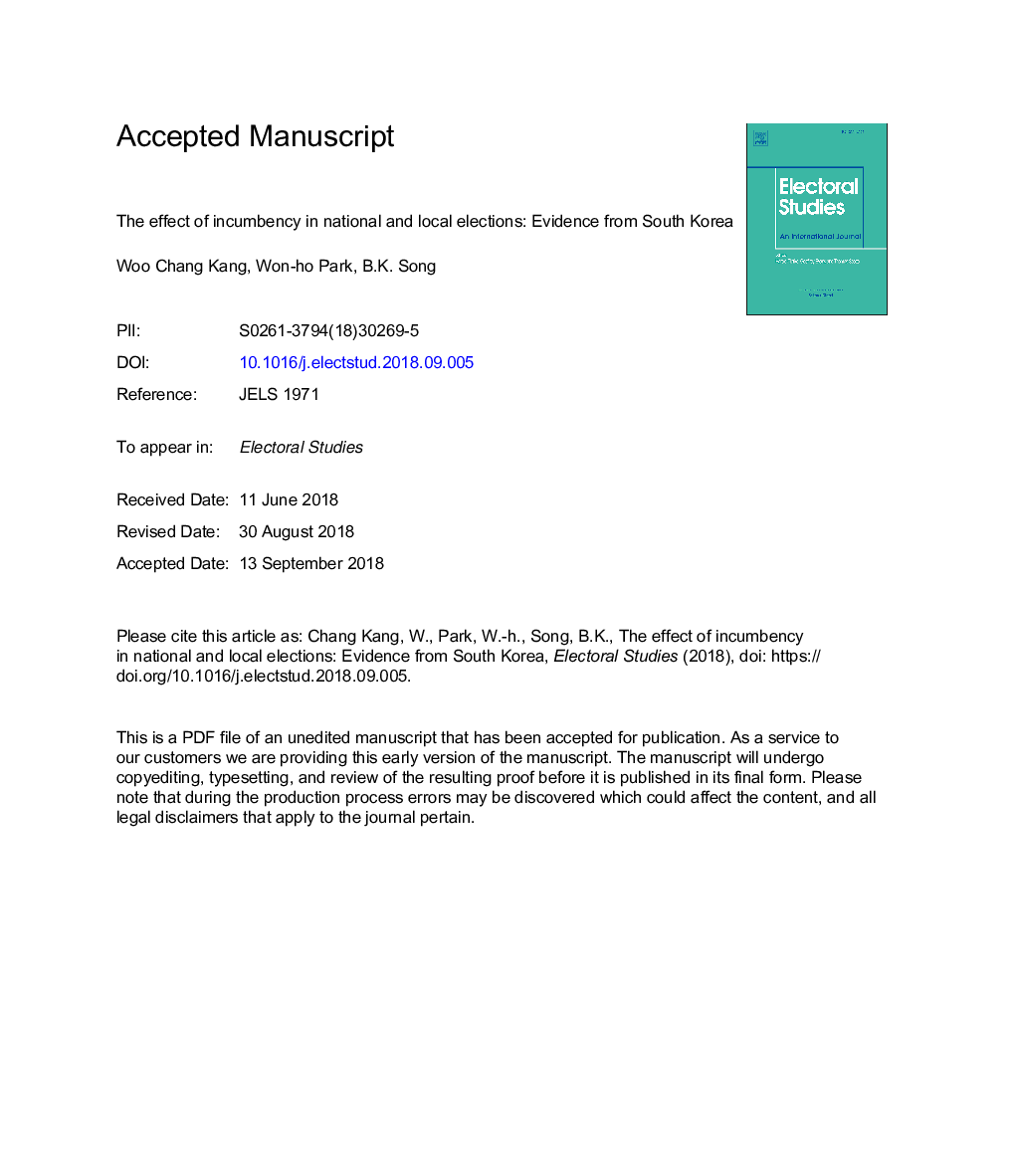| Article ID | Journal | Published Year | Pages | File Type |
|---|---|---|---|---|
| 11027536 | Electoral Studies | 2018 | 41 Pages |
Abstract
In this paper, we investigate the effect of incumbency in three different electoral settings in South Korea using a regression discontinuity (RD) design. We claim that incumbency provides advantages in local elections, but its positive effects diminish in national legislative elections. Local politicians have an opportunity to develop close ties with their constituents, insulating themselves from national politics; but, due to the centralized nature of national politics, members of the National Assembly do not. Consistent with our expectation, incumbency effects are generally positive in local elections, but insignificant or even negative in national legislative elections. We also find that politicians who previously held local elected office enjoy an incumbency advantage in national legislative elections.
Related Topics
Social Sciences and Humanities
Social Sciences
Geography, Planning and Development
Authors
Woo Chang Kang, Won-ho Park, B.K. Song,
